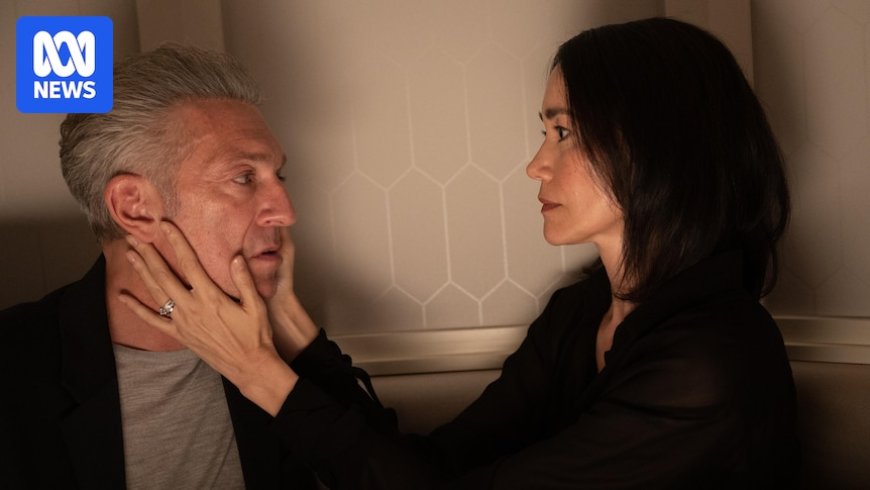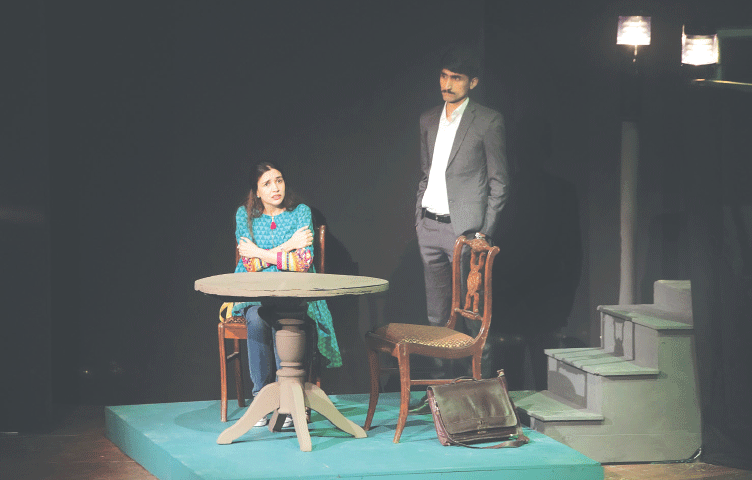David Cronenberg's The Shrouds: A Film About Grief and Technology
Discover how David Cronenberg's latest film, The Shrouds, explores grief through a unique tech-driven narrative. Follow the story of a tech CEO who mourns his dead wife by creating a cemetery that live-streams decomposing bodies. Despite its unconventional premise, the film delves deep into themes of loss and personal connection.

Body horror is having a moment, while its dad has a phone in front of his face. The gushing critical and cultural success of The Substance — the first body horror nominated for Best Picture at the Oscars — is just the tip of a resurgence, following the likes of Fresh, A Different Man, Infinity Pool, Malignant and Palme d'Or winner Titane.
Fast Facts about The Shrouds
What: Necrophilic-leaning tech CEO misses his dead wife.
Starring: Vincent Cassel, Diane Kruger, Guy Pearce
Directed by: David Cronenberg
Where: In cinemas now
Likely to make you feel: Unsettled and cold (whether that's positive will depend on you)
The biggest signifier of the genre's resurgence, though, was 2022's Crimes of The Future, the long-awaited return to body horror from David Cronenburg — the man who defined the genre in the 70s and 80s with The Fly, Videodrome and Scanners among others.
Despite Crime's acclaim, Cronenberg has again shifted away from body horror with his follow-up The Shrouds, a relatively restrained and cold drama — despite a crazed premise.
Even if it's not filled with the squelches and screams of a body keeping, ignoring or sublimating to the score, it will leave you deeply affected — if you can accept its stilted dialogue and convoluted plot as purposeful.
The Shrouds follows Karsh (Vincent Cassel), a grieving widow who founded GraveTech — a cemetery that offers grievers a live-streamed image of their loved ones' decomposing corpse, viewable in 3D and 8K from a tombstone screen, after logging in via an app.
Bodies are wrapped in a high-tech shroud embedded with cameras, so you can watch a feed of the decomposing body at any time on your phone, or on the person's headstone.
GraveTech is a nascent tech start-up, with only a dozen or so clients, and the Toronto graveyard doubling as a showroom. At its centre is a sleek restaurant with floor-to-ceiling windows, resembling an austere contemporary art gallery with outdoor activations.
At the film's beginning, Karsh takes a blind date there and, after a subdued lunch, shows her the live footage of his late wife Becca's (Diane Kruger) skeleton while they stand before her grave, calling it \"digital penetration\".
She's repulsed and soon leaves. But before she does, she can't help but revert her gaze to his stream, remarking how the footage — a high-tech shroud over the body, which renders corpses as though floating through space — is somewhat beautiful.
\"It has drained away the fluid of grief that was drowning me,\" says Karsh. \"That was killing me.\" Not exactly first date material — and neither is The Shrouds, though there's romance hiding deep within.
The Shrouds is the third collaboration between David Cronenberg and Vincent Cassel, following 2007's Eastern Promises and 2011's A Dangerous Method.
When the cemetery is vandalised, Karsh, Becca's sister Terry (also Kruger) and Terry's ex-husband Maury (Guy Pearce) are consumed by conspiracies, investigating whether strange growths on Becca's skeleton suggest a medical cover-up or interference from China, Russia or some other shadowy force.
Despite the premise, Cronenberg bills The Shrouds as his most personal work ever. Now 82, he wrote the screenplay after his long-term wife, the filmmaker Carolyn Zeifman, died in 2017.
Review: 28 Years Later Photo shows A man and a boy run desperately through grass towards the camera as they are chased by zombie-like creatures. The eagerly anticipated sequel to 2002's unexpected runaway undead hit holds at its centre a surprisingly compelling human story.
This is a deeply clinical visual world, far removed from the visceral sounds and throbbing violence of, say, his 1999 film Existenz.
There's a tech-world cleanliness to Karsh's life, which is designed to be as frictionless as possible — from his nondescript wardrobe, to his self-driving Tesla, to his AI personal assistant Hunny (also voiced by Kruger).
Together with the production designer Carol Spier, cinematographer Douglas Koch creates a pristine Toronto closer to the quiet luxury sheen of Succession than any of Cronenberg's more surreal works.
It approaches blandness, but that seems to be the point, given The Shrouds is fixated on screens. Where most filmmakers try to avoid shooting characters staring at their phones or at least explore different ways to shoot, Cronenberg has gone verité when it comes to how often Karsh is on a laptop, phone or tablet.
\"Filmmaking is physically very tough, but mourning is pretty tough, too. They're both very hard on every cell in your body. So I swapped mourning for movie making,\" David Cronenberg told Rolling Stone.
Not only are there several elongated scenes where Karsh talks with Hunny — who is as visually soulless as a Metaverse avatar — but we're often shown footage on iPhones, with Koch holding the frame on a hand holding the screen.
The videos shown are, true-to-life, often poorly shot, with ugly or obstructive angles of scenes, where faces are cut off in favour of their torso. It'll be followed by a technically wonderful shot, with gorgeous lighting and framing, but of a self-driving Tesla, no life present.
Dialogue, too, is ceaseless and often stilted — given Pearce, Cassel and Kruger's previous work, it's hard to believe they weren't encouraged into jarring, awkward line reads. Combined, the janky, occasionally ugly elements of The Shrouds give the film its own dream-like atmosphere, both banal and deeply strange.
If The Shrouds was a debut film, it might be hard to give it so much grace, and many people won't have the patience to, finding it too austere and removed for a film about grief.
\"The thing about great directors is that they don't talk too much — it's not needed. If he chooses you, he trusts you,\" Vincent Cassel told Sharp Magazine.
But Cronenberg could have easily created a visceral, violent body horror about grief. Instead, late into his career, he's making something much more daring.
By sitting in the visual horror of a tech-sanitised world, where texture and substance is erased in favour of ease, The Shrouds has a technical unease to it, as if something is missing.
Cronenberg recently said he \"lost the will to make movies\" after Zeifman died. And while he proved that he could create an excellent return-to-form just two years ago with Crimes of The Future, nothing quite works here.
That might make it one of the most quietly profound films about grief he could make.
What's Your Reaction?
 Like
0
Like
0
 Dislike
0
Dislike
0
 Love
0
Love
0
 Funny
0
Funny
0
 Angry
0
Angry
0
 Sad
0
Sad
0
 Wow
0
Wow
0










































































































































































